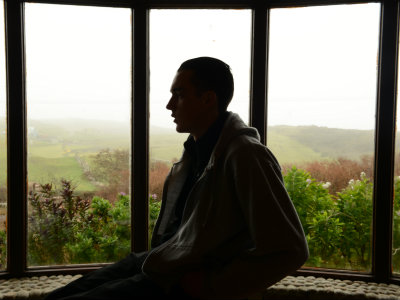
Detentions under the Mental Health Act rose 9% last year, official figures reveal.
An NHS Digital report published today shows there were 63,622 detentions under the act in 2015-16. This is up 9 per cent from the 58,399 detentions the previous year and 46% higher than the 43,461 detentions in 2005-06.
Almost a third of patients (30%) detained under the act at the end of March this year were being treated in private hospitals, the highest proportion on record.
The figures follow a survey of Approved Mental Health Professionals (AMHPs), the group of mostly social workers who coordinate Mental Health Act assessments, that revealed longstanding problems securing beds for patients in need were getting worse. Separate Community Care research found AMHP numbers dropped by 7% over the past three years with some councils reporting “severe” shortages, despite record demand.
Steve Chamberlain, chair of the national AMHP leads network, said AMHPs were finding it increasingly difficult to find alternatives to hospital admission when people were in crisis.
“Resources for community services are more and more stretched, it’s often very difficult to find any other response than detaining someone to hospital. We have seen a focus from government on crisis care but even the crisis care concordat didn’t have additional resources attached to it for preventative, more upstream, services.
“We have fewer AMHPs being asked to do more assessments every year. Clearly the most important people here are those who are being assessed but there is also increasing pressure on the professionals having to make those decisions. It cannot go on forever. Something has got to give eventually.”
In response to the NHS figures care regulator the Care Quality Commission said it had launched an investigation into reasons why detentions continue to rise. The project will report next year.
Dr Paul Lelliott, the CQC’s lead inspector for mental health, said: “The causes of the rise in the use of the act are likely to be complex, but the increase in detentions needs to be examined carefully.
“We do not know, for example, the extent to which the rise is due to repeated detentions, it could signal a lack of support in the community for people with serious mental health problems or if people are being detained repeatedly, it could be a sign that some services are operating ‘revolving door’ admissions.”
The use of section 136 of the Act, under which police can detain someone to a place of safety to await assessment, where people were taken to an NHS based place of safety rose 18% to 22,965.
NHS Digital said this could be due to cuts to NHS mental health services and “the police stepping in where other agencies could have provided support”. It could also reflect better data reporting or a greater willingness of police to use the power knowing that more NHS place of safety units are available, the agency added.
The number of section 136 cases where the patient was detained in a police cell dropped from 3,996 to 1,764 over the same period, according to figures released earlier this year by the National Police Chiefs’ Council.


 Bournemouth, Christchurch and Poole
Bournemouth, Christchurch and Poole  Hampshire County Council
Hampshire County Council  Lincolnshire County Council
Lincolnshire County Council  Norfolk County Council
Norfolk County Council  Northamptonshire Children’s Trust
Northamptonshire Children’s Trust  South Gloucestershire Council
South Gloucestershire Council  Wiltshire Council
Wiltshire Council  Wokingham Borough Council
Wokingham Borough Council  Children and young people with SEND are ‘valued and prioritised’ in Wiltshire, find inspectors
Children and young people with SEND are ‘valued and prioritised’ in Wiltshire, find inspectors  How specialist refugee teams benefit young people and social workers
How specialist refugee teams benefit young people and social workers  Podcast: returning to social work after becoming a first-time parent
Podcast: returning to social work after becoming a first-time parent  Podcast: would you work for an inadequate-rated service?
Podcast: would you work for an inadequate-rated service?  Family help: one local authority’s experience of the model
Family help: one local authority’s experience of the model  Workforce Insights – showcasing a selection of the sector’s top recruiters
Workforce Insights – showcasing a selection of the sector’s top recruiters 

 Facebook
Facebook X
X LinkedIn
LinkedIn Instagram
Instagram
Thanks, Andy for raising this again.